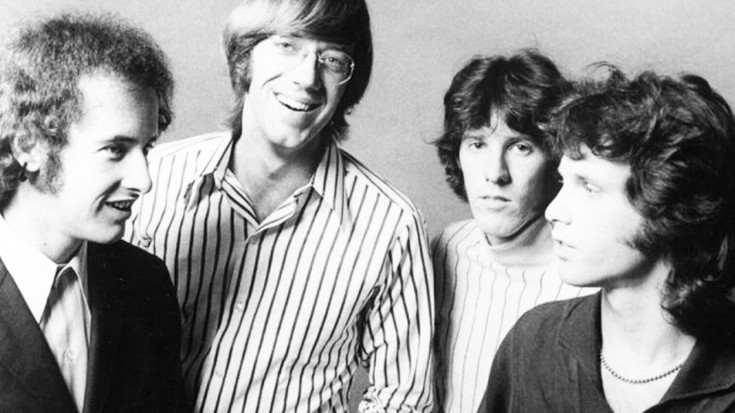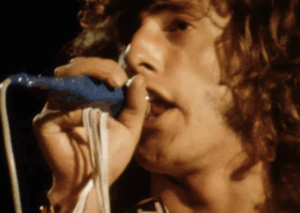The 10 Worst Albums Made By Great ’70s Bands

Even the greatest bands of the 70s, known for their iconic albums and unforgettable performances, occasionally stumbled in their creative journeys. Whether due to internal tensions, shifts in musical direction, or simply the absence of key members, these albums failed to live up to the high standards set by their creators. Yet, these missteps remain interesting, if only because they offer a glimpse into the struggles even the most legendary musicians face. Here are ten of the most disappointing albums from some of the 70s’ greatest bands:
The Doors – Other Voices
With the release of Other Voices in 1971, The Doors confronted the daunting question: Can the band survive without Jim Morrison? While Robby Krieger, Ray Manzarek, and John Densmore were all talented musicians with much to offer, the absence of Morrison’s charisma was undeniable. The album lacks the poetic intensity and distinctive personality that Morrison brought, leaving The Doors sounding more like a generic blues rock band rather than the groundbreaking force they once were.
Creedence Clearwater Revival – Mardi Gras
Mardi Gras marked the end of Creedence Clearwater Revival’s remarkable career. The 1972 album came as a result of a new agreement within the band, which saw members Stu Cook and Doug Clifford taking on more prominent roles. Unfortunately, this shift led to an uninspired final product that fell far short of the band’s previous high standards.
The Doors – Full Circle
Following the tepid reception of Other Voices, The Doors attempted to carry on with Full Circle in 1972. While the album contains a few decent melodies, it ultimately feels uninspired and lacks the creativity that once defined the band. The title, Full Circle, is fitting, as it seems to signify the band’s final attempt to close the chapter on their career after Morrison’s death.
Lou Reed – Metal Machine Music
Metal Machine Music is an album that tests even the most dedicated fans of Lou Reed. Comprised of over an hour of abrasive, discordant noise, this 1975 album is challenging to listen to. Reed reportedly recorded the album in just 24 hours, using out-of-tune guitars and massive amplifiers to create a wall of sound that many found almost unbearable.
Humble Pie – Street Rats
By the time Street Rats was released in 1975, Humble Pie was a band on the brink of collapse. The album, recorded after the band had reconciled with manager Andrew Oldham, lacked the fire and energy of their earlier work. The group’s internal differences had reached a breaking point, and it was clear that Humble Pie was no longer the cohesive unit it once was.
The Kinks – The Kinks Present A Soap Opera
Ray Davies’ fascination with concept albums reached a low point with The Kinks Present A Soap Opera. While the album, released in 1975, was another attempt at creating a rock opera, it lacked the depth and creativity that made previous Kinks records so compelling. Critics were quick to dismiss the album as one of the weakest in the band’s catalog.
Alice Cooper – Goes to Hell
After the dark success of his previous album, Alice Cooper took listeners on another twisted journey with Goes to Hell in 1976. While the album continued Cooper’s exploration of theatrical rock, it failed to deliver the same impact. Despite a few standout tracks, Goes to Hell felt like a rehash of ideas rather than a bold new direction.
Emerson, Lake & Palmer – Love Beach
Love Beach is often remembered for its dreadful cover art, which only added to the album’s underwhelming reception. Recorded in the Bahamas as a way to quickly fulfill a contract, this 1978 album lacks the complexity and innovation that defined Emerson, Lake & Palmer’s earlier work. Instead, it offers a collection of mediocre tracks that do little to showcase the band’s true talent.
Black Oak Arkansas – I’d Rather Be Sailing
Following the success of High on the Hog, Black Oak Arkansas struggled to recapture their previous energy with I’d Rather Be Sailing, which was released in 1978. While the album contains some moments of their signature Southern rock spirit, it ultimately falls flat compared to their earlier efforts.
KISS – Peter Criss
By 1978, KISS was at the height of their popularity, but internal tensions were beginning to take their toll. Peter Criss’s solo album, released as part of the band’s plan to have each member release a solo project, was met with mixed reviews. The album failed to capture the raw power and energy that made KISS a household name, and it signaled the beginning of the end for the band’s original lineup.






















